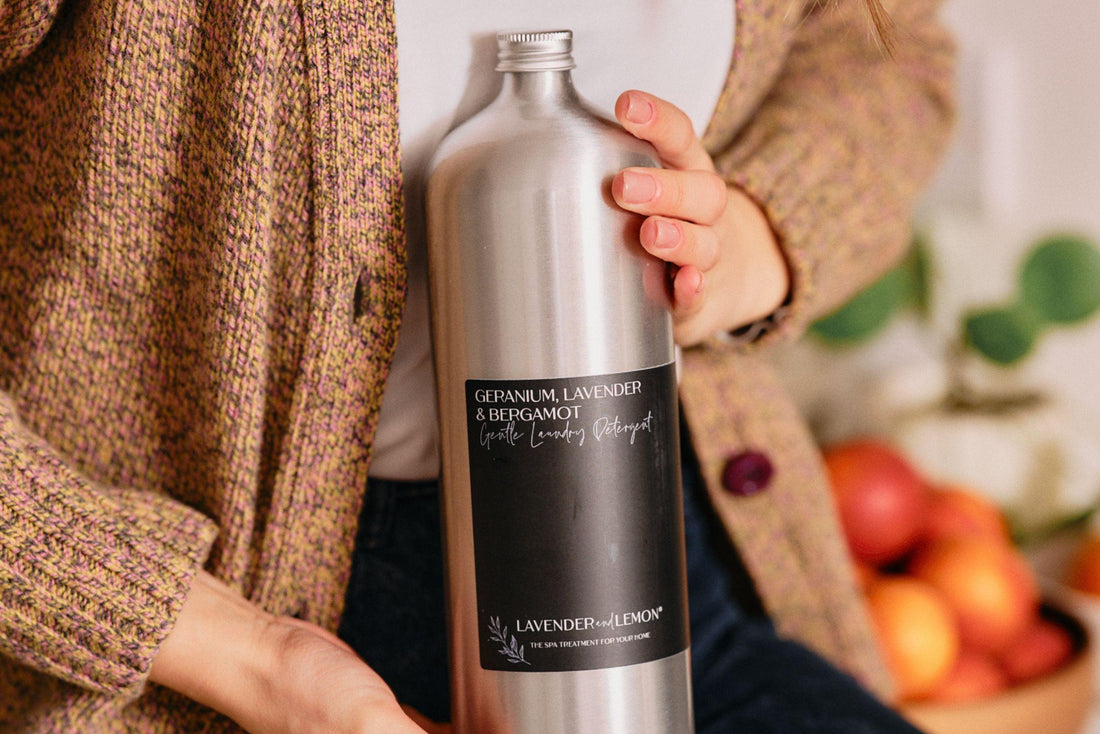Free Shipping Over £40

The Benefits of Using Eco Laundry Detergent for a Sustainable and Clean Home
Share
As more consumers embrace eco-friendly products to reduce their environmental impact, choosing eco laundry detergent is one of the simplest and most effective ways to make your home more sustainable. Traditional laundry detergents often contain harsh chemicals that can harm the environment, pollute water systems, and cause irritation for people with sensitive skin. Switching to eco laundry wash offers a greener alternative that’s just as effective at keeping your clothes clean while protecting the planet.
In this blog post, we’ll explore the benefits of eco laundry detergent, why it’s an important choice for eco-conscious households, and how to choose the best laundry liquid eco option for your needs.
What Is Eco Laundry Detergent?
Eco laundry detergent is formulated with natural, biodegradable ingredients that are gentle on the environment while still providing effective cleaning power. Unlike conventional detergents, which often rely on synthetic chemicals, eco detergents use plant-based ingredients, essential oils, and non-toxic surfactants that break down easily and are safe for aquatic life.
These eco-friendly detergents are designed to clean clothes effectively without releasing harmful chemicals into the water supply, making them an ideal choice for those seeking to reduce their environmental footprint.
Why Choose Eco Laundry Detergent?
There are many reasons to make the switch to eco laundry detergent. From the ingredients to the packaging, eco-friendly laundry products offer numerous benefits for both your home and the environment.
1. Reduced Environmental Impact
Traditional detergents contain chemicals like phosphates, sulfates, and synthetic fragrances, which can contribute to water pollution and harm marine ecosystems. Eco laundry wash is made with biodegradable ingredients that break down naturally and safely, reducing the amount of toxins released into water systems.
Additionally, many eco-friendly detergents come in recyclable or compostable packaging, further minimising waste and helping you reduce your carbon footprint.
2. Safe for Sensitive Skin
For individuals with sensitive skin, allergies, or eczema, laundry liquid eco options provide a gentler alternative. Eco detergents typically exclude harsh chemicals and synthetic fragrances that can irritate the skin, making them perfect for babies, children, and anyone with delicate skin.
3. Energy-Efficient Washing
Many eco laundry detergents are designed to work effectively at lower temperatures, allowing you to wash clothes in cool or warm water without compromising on cleanliness. This not only saves energy but also extends the life of your clothes by reducing wear and tear from hot water washes.
Key Features of Eco Laundry Detergent
When choosing an eco laundry detergent, there are several features to look for to ensure you’re making the best choice for your home and the environment.
1. Biodegradable Ingredients
A good eco laundry wash will contain plant-based, biodegradable ingredients that are safe for the environment. Look for detergents that are free from phosphates, parabens, and other harmful chemicals that don’t break down easily.
2. Cruelty-Free and Vegan
Many laundry liquid eco options are cruelty-free and vegan, meaning they aren’t tested on animals and don’t contain animal-derived ingredients. This ensures that your laundry routine aligns with your values and contributes to a more ethical way of living.
3. Sustainable Packaging
Eco-friendly packaging is a key feature of many eco laundry detergent brands. Look for products that come in recyclable, refillable, or compostable containers to minimise plastic waste and reduce your overall environmental impact.
4. Low-Waste Formulas
Many eco laundry detergents come in concentrated formulas, which require less product per wash. This reduces the overall packaging and waste, making your laundry routine even more sustainable.
The Best Ways to Use Eco Laundry Wash
Using eco laundry wash is simple and straightforward, and it can be just as effective as conventional detergents when used correctly. Here are some tips to get the most out of your eco-friendly laundry detergent:
- Follow the instructions: Make sure to use the recommended amount of laundry liquid eco detergent per load. Because eco detergents are often more concentrated, using too much can leave residue on your clothes, while using too little may not effectively clean them.
- Wash at lower temperatures: One of the main benefits of eco laundry detergent is that it works well in cold or warm water. Lowering the temperature of your wash cycle saves energy and is gentler on your fabrics, making your clothes last longer.
- Pre-treat stains naturally: For tough stains, consider using natural stain removers like baking soda, vinegar, or lemon juice in conjunction with your eco laundry wash to boost its cleaning power.
Choosing the Right Eco Laundry Detergent for Your Home
With so many eco laundry detergent options available, it can be challenging to choose the best one for your needs. Here are a few things to consider when selecting the right detergent:
- Look for certifications: Certifications like EcoCert, the Vegan Trademark or the EU Ecolabel are good indicators that the laundry liquid eco product meets high standards for environmental sustainability and safety.
- Check the ingredients: Make sure your detergent is free from harsh chemicals, artificial fragrances, and dyes. Natural ingredients like coconut oil derivatives, plant enzymes, and essential oils are safe and effective cleaning agents.
- Choose your fragrance: If you prefer scented laundry, look for eco laundry detergents that use natural essential oils to create refreshing, non-toxic scents. Popular options include lavender, citrus, and eucalyptus.
Make the Switch to Eco Laundry Detergent
Switching to eco laundry detergent is an easy and impactful way to make your home more sustainable. Whether you’re looking to reduce your environmental footprint or protect sensitive skin from harsh chemicals, eco laundry wash offers a safe, effective solution for your laundry needs.
By choosing a laundry liquid eco option, you’re not only helping to keep your clothes clean and fresh but also contributing to a healthier planet. Start exploring the many eco-friendly detergent options available and take the first step toward a greener laundry routine.
RELATED ARTICLES
Understanding the Difference Between Bio and Non-Bio Laundry Detergent: Which Is Right for You?
The Benefits of Non-Bio Laundry Liquid: A Gentle and Effective Option for Your Laundry
The Ultimate Guide to Choosing Laundry Detergents for Sensitive Skin
Discover the Best Laundry Products in the UK: A Guide to Eco-Friendly and Natural Detergents
The Benefits of Using Environmentally Friendly Laundry Detergent for a Sustainable Home
Why Choose Organic Laundry Detergent for a Cleaner, Greener Home
The Benefits of Lavender Laundry Detergent: A Natural Way to Freshen Your Clothes
Which Laundry Detergent is the Best? A Guide to the 5 Best Laundry Detergents for Every Need
Why Choose Non-Toxic Laundry Detergent in the UK? A Guide to Safer, Healthier Laundry
The Best Detergent for Wool: A Guide to Properly Caring for Your Wool and Silk Garments
The Benefits of Using Essential Oils for Laundry: A Natural Way to Freshen Your Clothes








